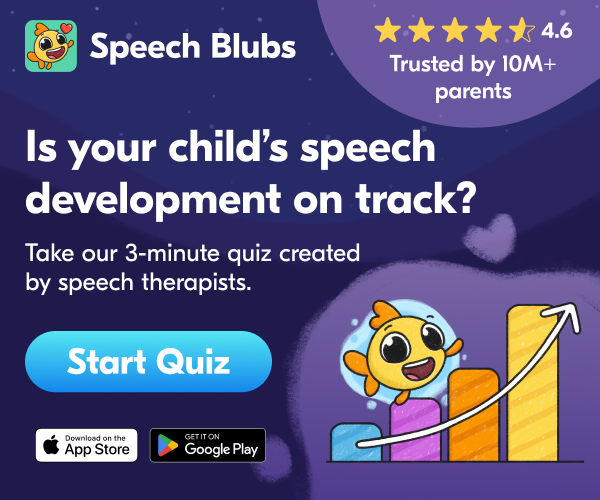Raising a Bilingual Child
In This Article
- How Bilingual Families Handle Speaking in Two Languages
- Every Bilingual Child is Unique
- 5 Ways to Encourage Bilingualism
Just because a child is being raised in a bilingual home, does not mean they will develop a speech and language delay. I get a lot of parents asking how they can help their children learn language when they are learning more than one language.
Children can learn to speak more than one language. They can learn languages at home, at school, or in the community. Some children can speak two languages easily. But sometimes they know one language better than the other. The language your child knows better is his dominant language. Over time, the dominant language may change. For example, a child who speaks Spanish at home may start to use English when she starts school. Her dominant language could change from Spanish to English.
It’s not just because I write blogs for them, but I would totally recommend the Speech Blubs app when working with ANY child that has speech and language delays, or if you just want to enhance the skills that they already have.
For children that are bilingual, Speech Blubs has English, Spanish, Portuguese (Brazilian), and French versions that are available for use. This is a great app for practicing skills such as articulation (forming speech sounds), oral motor activities (how to move their mouths to create speech), and formulating syllables, words, and sentences.
https://www.youtube.com/watch?v=MMmOLN5zBLY
How Bilingual Families Handle Speaking in Two Languages
I know what you’re thinking. So what if my child is learning a language other than Spanish? I always tell my families that no matter what language they are attempting to learn, you want to make sure you are distributing the time that they are exposed to each language is equal.
For example, if mom speaks Arabic and Dad speaks English, make sure mom speaks Arabic in the morning and Dad speaks English at night. Or, some parents divide up speaking the languages so one or the other is the dominant language speaker, and the other speaks the second language.
Another way to distribute the languages is to supplement whatever they are hearing in one language with the other. An example of this is if the child requests “milk” in English, you say “milk” in the other language and attempt to have the child produce the same word.
Whatever word you are attempting to elicit, you want to only request the child say it three times. Any more than that, research as proven children become frustrated and will avoid the word all together.
Another tip, you can focus on ONE language while at home and then your child will learn the second language at school. If you’re a Spanish speaking household, continue to speak Spanish all the time to your child. When they enter preschool, they will be exposed to the second language.
Every Bilingual Child is Unique
Learning two languages depends on the amount and type of practice your child gets (ASHA.org). The following are some basic guidelines:
- Most bilingual children speak their first words by the time they are 1 year old. By age 2, most children can use two-word phrases. Phrases like “my ball” or “more juice” can be in one or both languages.
- From time to time, children may mix grammar rules. They might use words from both languages in the same sentence. This is a normal part of becoming bilingual.
- Some children may not talk much when they start using a second language. This “silent period” can last for several months. Again, this is normal and will go away.
5 Ways to Encourage Bilingualism
- Books: You can read to your child in both languages. You can find the books you need at bookstores, at libraries, and on the Internet.
- Music: Singing is a great way to introduce a second language to your child. And, it can be a lot of fun!
- TV and videos: Children’s programs are available in many languages. These programs teach children about numbers, letters, colors, and simple words.
- Language programs: Children can learn other languages at camps or in bilingual school programs. These give children the chance to use two languages with other children.
- Speech Blubs app: If you speak English, Spanish, Portuguese, or French at home, you can use the Speech Blubs app for some additional speech practice at-home.
 By Stacie Bennett
By Stacie Bennett

